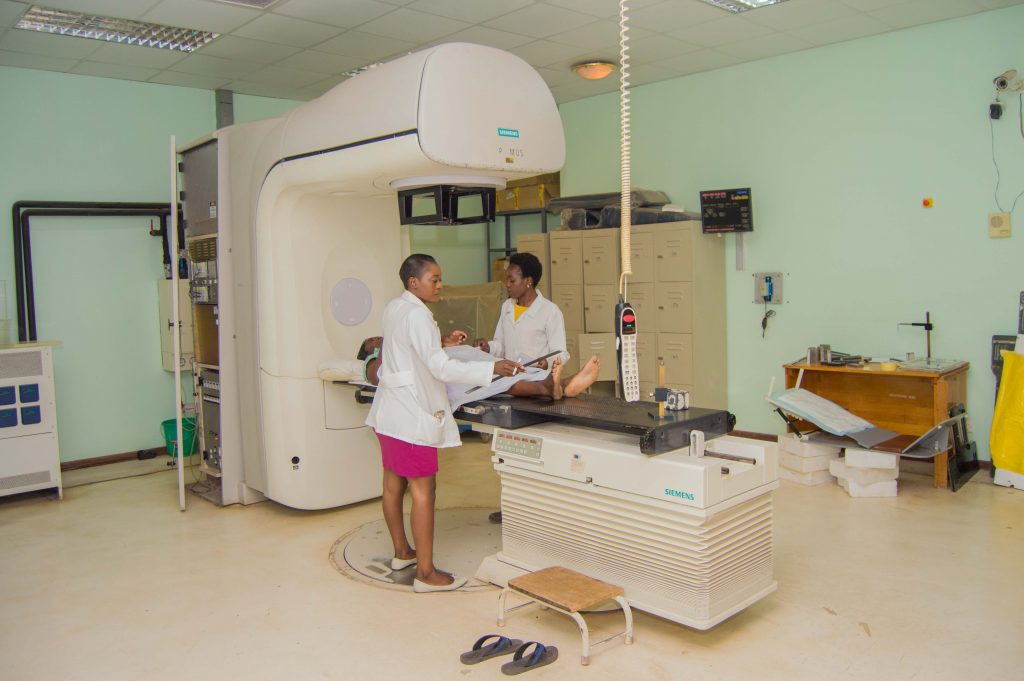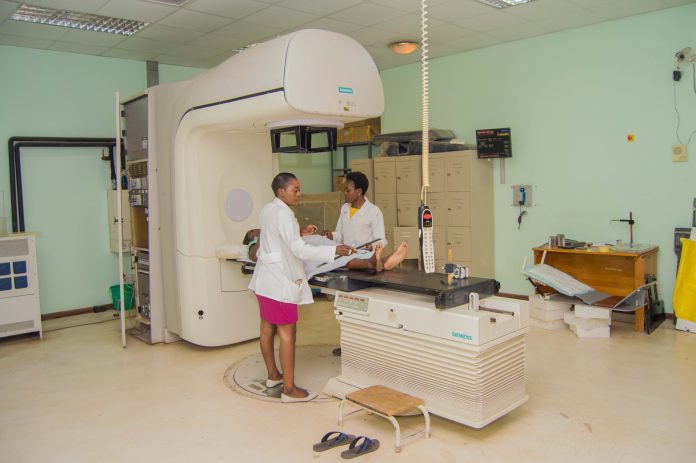
According to the WHO, Universal Health Coverage (UHC) means everyone in the country can use the promotive, preventive, rehabilitative and palliative health services they need of sufficient quality to be effective, while being protected from financial loss (WHO, 2017). So far, only 58 countries in the world- 10 in Africa are regarded to provide Universal health care as they have legislation mandating Universal Health care. The question is, is this attainable in Zambia? As optimistic citizens, the answer is a resounding “YES”.
However, in the real world, this is just an aspiration of where mankind would love to be-Utopia. Should a Man in need of Sildenafil, Viagra (the conventional Congo dust or mutototo) for his erectile dysfunction get his fair share of the health service as a new-born that needs Measles vaccination? Should a woman that needs breast implants get a fair share as an accident victim that that needs a hip replacement? These questions seem to be clear cut but imagine a choice between providing Second line HIV treatment versus providing palliative care to a cancer patient. As long as resources are scarce, choices will have to be made on resource allocation. Unlike accounting, aimed at balancing the books, of where the money came from and where it is spent, it is important to keep in mind the opportunity cost of these resource allocations. This means that when resources are used in one way, they are not available for use in other activities and the benefits that would have resulted from the left alternative are sacrificed.
Among the critical issues in Social Health Insurance is defining the benefits packages. This gives the insured persons the right to a given set of services in exchange for their contribution. Therefore, a contractual arrangement between the insurance and the insured persons which guarantees a minimum package exists. This is unlike in the tax financed system which only guarantees care to the extent it can afford at a time. Where a clear benefit package is not established, the economic and financial viability of the system remains at risk of failure. In addition, measure to curb gaming of the system (Moral hazard) need to be established from the onset.
Since 1991, Zambia has been looking at introducing social health insurance. In light of the 1991 economic structural adjustment policy, Zambia sought to mobilize additional financial resources for health and thus requested had requested the International Labor office (ILO) to provide health with consultancy services. Fast forward to 2011, the current government rekindled the momentum to introduce Social health Insurance in Zambia. Zambia should be commended for laying a foundation for sustainable health care financing. Nonetheless, the case of Ministry of Health (MoH), who to this day is in charge of health care provision, has been spear-heading the Social health Insurance. One would, argue that MoH becomes the judge and the jury (i.e. Payer and the Provider). This is a big recipe for compromised service provision as it tends to create what may be some sort of a “bilateral Monopoly”, market of one supplier and one buyer-except the buyer and seller in the case of the Ministry of Health in Zambia is one. This does not favor competition and ultimately kills quality improvement. Therefore, I order to ensure that the dream.
With the need to provide care for all one would argue about what kind of medical technologies to pay for and what not to pay for. With the technological advancement, arrays of treatments for diseases have been established. Some treatments may provide superior clinical effectiveness alas at a high cost. The question, which arises then, is whether the extra clinical benefit is worth the extra cost. It is such questions that have lead to the establishment of Pricing and Reimbursement sections in Health Insurance, Schemes such as the Pharmaceutical Benefit Scheme of Australia, and the National Institute for Health and Care Excellence (NICE) in the UK, the National Center of Pharmacoeconomics in Ireland etc. The hallmark of these institutions is to see to it that a Budget Impact Analysis (BIA) and an Economic Evaluation is conducted whenever there is plans to introduce a new treatment or even change the treatment guidelines. For example, when switching to option B+ in HIV management in Zambia, as advocated for by the WHO, it is also argued that local health economic evaluation is necessary to understand the cost implication.
As is always the case in Economics, one can always learn from history or experiences of others. Therefore, as Zambia embarks on the Social Health Insurance program, it can learn from other countries. For Instance, Germany known to be among the oldest Social Health Insurance countries, introduced health Economics evaluation to improve efficiency and curb the deficit that was increasing. Similarly, South Korea, which introduced Social Health Insurance in 1977, much like the intended Zambian model that aims to first start with employees in the formal sector was faced with a cumulative deficit. This led to a number of reforms among them was the use of Economic data in decisions regarding payment for newly introduced medical technologies. Therefore, it just makes sense that from the very beginning Zambia incorporates Economic Evaluation in the reimbursement for Health Technologies under the Social Health Insurance.
Therefore, as Zambia forges ahead with Social Health Insurance, it is time to ensure that the foundation is well set and that strong institutions that consider not only how resources are mobilized in the health sector but also that the citizens get value for money. One such arm of this institution would be a strong Health Technology Assessment wing. This wing should be mandated to deliver evidence based recommendations on health technologies. The wing should create a multi-disciplinary pool of experts in Health Economics, Clinical practice, public health, laboratory services etc. Then and only then will we see this institution serve its purpose.
About the author:
Peslie qualified as a Health Economist after his study for a joint Master of Science in International Pharmacoeconomics and Health Economics from Cardiff University in the United Kingdom and Fresenius University of Applied Science in Germany. In 2015, he was awarded the STIBET scholarship of the German Academic Exchange Service (DAAD), a scholarship for foreign students who exhibit outstanding performance in their studies at Germany Universities. Prior to joining the Manchester Centre for Health Economics, he worked in the Medical device Industry in Germany on Health Economic Evaluation and Market Access projects. Peslie graduated with a Bachelor of Pharmacy degree from the University of Zambia in 2011, after which he worked as a pharmacist in different settings before embarking on postgraduate studies.
Memberships
Health Economics Study Group, UK (HESG)
Health Professionals Council of Zambia (HPCZ).



It’s really nice when Zambians go abroad and like people in the West want to transplant programs that work in other contexts into the Zambian setting.Lets look at Tanzania which is a closer example than Germany or South Korea.So in Tanzania in 1995 they introduced a type of health insurance in line with the WHO universal health plan.An assessment 10 years later showed that coverage was less than 10%.How do you expect poor people to pay?First line of treatment are traditional healers.How do you expect the hospitals to have the medical technologies and treatments to support a poor population? How do governments with a poor tax base support quality health care.?It can’t work. Cost sharing is a farce in africa.Africa needs african soultions.South africa has a better idea -a more socialist…
That is a valid view nurse Betty. However, I find you to rush into dispelling the article by assuming it aims to transplant foreign solutions. What would you be idea of an African solution to health financing in Zambia? Do you agree that even in the current form of tax based health financing for Zambia there is need to utilise health Economic principles? Can we surely call afford to be having drugs worth millions of Kwacha expire? Would you agree with me that African societies have had a long history of cost sharing except except not harnessed into structured institutions. I grew up in a society that when a member of the society fall ill the people contribute in their small ways to help, a society where during funerals members of the community including churches go round to gather…
@muntu the African society does help it’s poorer relatives and friends in health care that I agree and that differs from the West. So one reason health insurance is a challenge is why would my uncle in Kalingalinga pay a small fee every month for health insurance when he knows his children or extended family will pay for his medical bills if he ever fell ill? I’m not saying it’s good but my uncle has his own health economics knowledge which policy makers or health economists should not discount. Besides,before the economic crash post independence in many african countries health care was free.It became unsustainable thereafter. My plan would be to utilize one of Africa’s vast resources – its people. Do some form of barter -services for health. eg the hospital will be built,cleaned…
Damn LT why did you chop my comment!! I was saying local communities would be responsible for their health centres.Our universities can do local research and come up with locally produced drugs.It will take long but the long term benefits will be great.we can set up manufacturing companies-surely we can start manufacturing our own needles,gloves,IV fluids,…simple things to start with then expand.Donors would not support this.But funny thing is Africa has the worlds raw materials so why are we the beggars? Dependance on industrialised countries for expensive equipment and drugs is unsustainable and leave us as beggars…
We are absolutely on the same page here @nurse Betty. It is true that post independence health care in many African countries was tax financed. Along the way the demand for health services coupled with myopic policies has out stripped the supply, hence the need to rethink our model. I totally agree with your that resource mobilization has to be well thought through to embrace everyone. For example like you talk of some form of barter service, we surely can have some people get a waiver of the insurance premium through such a service like cleaning health institutions. I have seen villagers in rural Zambia make blocks and gather other materials to build a clinic, why then can’t there be a legal contract of the minimum service they can receive. And whilst the Health Economists advise on the…
The challenge though is providing quality health care with meagre resources.
let me be totally radical, we all give reasons why programs don’t work but we never mention the obvious reason that we lag behind the rest of the world , the real reason for our problems if we are HONEST is CORRUPTION. Corruption coupled with an inability to accept that corruption is the root cause of our inability to progress.
Scholars think of a way to alleviate poverty and we are at the start of a journey to stamp out corruption
Well articulated Pharm Pesley, indeed the MoH cannot be the judge and the jury. A serious thing to note is that private insurance firms (players) despite all their experience and infrastructure have been sidelined…
Firstly, thank you Peslie for this great piece of a well researched and informative writing.
The biggest fear would be compromised service provision leading to citizens receiving less for the value of there money, especially if one institution is the payer and the provider.
You are right, it is important to ensure that the foundation is well set and that strong institutions are established so that the citizens get value for money.
Key stakeholders need to be embraced in the entire process from planning to actual implementation of the Social Health Insurance Policy.
Comments are closed.